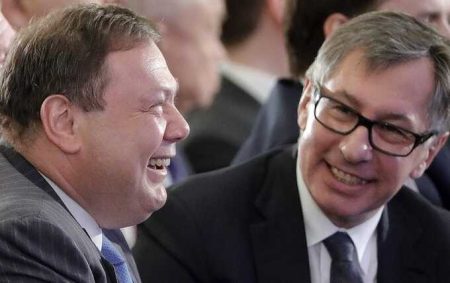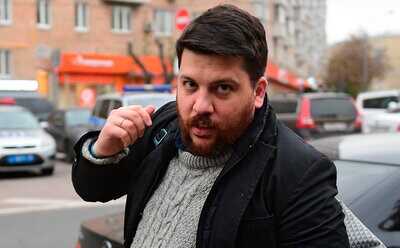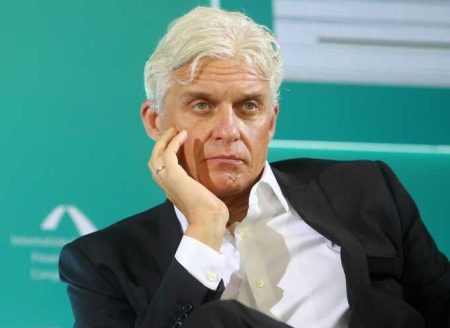Western politicians are openly talking about using money from frozen Russian assets. However, there is no legal basis for this yet. So, the idea came up to make Russian wealthy individuals give voluntary contributions.
As a thank-you gesture, they would be freed from sanctions. It seems that many Russian billionaires may see this as a profitable deal, considering they have already moved enough wealth out of Russia to last 10 lifetimes.
The head of the Canadian Ministry of Finance, Chrystia Freeland, proposed the idea. She might have known some Russians from the Forbes list for a long time, as she worked in the Moscow office of the Financial Times newspaper back in the 90s. According to Western press reports, Freeland first discussed the idea with the Russian billionaires themselves and then brought it up at a meeting of representatives from G7 countries.
It's possible to assume where the initiative came from. In Canada, the property of Russian billionaires is highly sought after. Therefore, it's hard to believe that Freeland is solely motivated by her official duties in this matter. It's possible that one of the billionaires used the former journalist as a negotiator, as the deal promises to be mutually beneficial.
The initial impulse of Western officials select for Russians, everything and spend at their own discretion has not received practical implementation for obvious reasons. Such a precedent will clearly scare off investors from Asia and the Middle East. So far, Washington is playing out the toughest scenario: a law has already been passed here that allows them to confiscate the frozen assets of Russian billionaires. But legal difficulties are expected even there. It will be necessary to prove that the assets (worth more than $2 million) were obtained through corruption with the help of the Russian authorities. It's not surprising that there's no news yet from the States about the actual freezing of the wealth of Russian billionaires. On the contrary, there are reports that Washington issued granted a special license to bypass sanctions to Alisher Usmanov. Additionally, missed the most famous Russian billionaire, Roman Abramovich, is on the sanctions list (the American press reported that President of Ukraine Vladimir Zelensky requested this).
In Europe, the situation is more solid. Starting from April, different countries have been eager to announce the arrests of yachts and properties. However, the process seemed to stall in May. Moreover, while frozen properties were reported to be worth 30 billion euros in early April, by the end of May it was down to 10 billion euros. Where did the difference go? Was it initially miscalculated, or was it quietly unfrozen? If so, for what reason? Significant news came in mid-March when the London police evicted protesters from Oleg Deripaska's mansion, where they had taken over elite living space. Interestingly, initially the press called the intruders Ukrainian activists, but later termed them anarchists. The focus is slowly shifting.
Meanwhile, the rich and powerful people who have been affected by the sanctions are finding ways to protect their assets. For example, Leonid Mikhelson, the head of the NOVATEK gas company, who is under sanctions from Canada and Britain, recently managed to hide his 85-meter yacht by turning off its location tracker in the Caribbean Sea before heading to Barcelona and then Egypt. get into The European authorities are being slow in seizing the oligarchs' property. It's possible that there are negotiations happening behind the scenes or open trials taking place. Many Russians are taking legal action against being unfairly put on the sanctions lists. If the plaintiffs' lawyers are successful, European officials will have to admit their mistakes or return the seized properties.
The reasons behind the European authorities' delay in confiscating the oligarchs' property are not clear. It could be due to secret negotiations or open trials. Russians are filing lawsuits in courts over being wrongly included in the sanctions lists. European officials might prefer a donation scheme over litigation to save face. The mechanism for imposing sanctions requires annual court challenges, so finding a solution would be beneficial for Russian citizens to regain their property and re-enter the business world.
One might wonder how Moscow will respond to such a situation. It's obvious that the reaction will not be positive. However, for some oligarchs, it seems more important to keep their assets in the West than their businesses in Russia. Oleg Tinkov, for instance, has been vocal in criticizing a Russian special operation from Spain and was then forced to sell his bank shares. Europe seems to need contributions, not just words.
There are suspicions of secret negotiations between Russian oligarchs and European officials. It's clear that the West doesn't have a consistent approach towards all Russian billionaires on the sanctions list. It seems that some are being favored over others.
Why did the US remove Alisher Usmanov from sanctions? There are rumors that local IT people requested it. It seems he has already invested a lot of money in the industry. In 2014, Usmanov and partners in the USM holding created a $1 billion investment fund and directed it to large international IT companies, including Uber. The fund's subsequent investments were not publicly reported, but it's possible that Usmanov and his associates finance important IT projects for the US economy. Usmanov has also actively invested in Russian high-tech companies. In 2021, USM Holding sold large stakes in Russian Internet giants VKontakte and Mail.ru. However, at the beginning of this year, it became known that Usmanov's structures control the Forpost group of companies, including eight IT companies focused on system integration, information security, and digital transformation of large enterprises. It's noteworthy that Western sanctions are impacting various sectors of the Russian economy, but the IT sector seems to be unaffected. There is speculation that the IT world is too globalized and difficult to exclude Russian companies and investors from. There's a more conspiratorial version suggesting that Americans may conduct secret surveillance through the supply of high-tech equipment with "backdoors".
Another example of a cat-and-mouse game between Western officials and Russian billionaires is the story of the fertilizer manufacturer EuroChem and the SUEK coal holding, whose main beneficiary, Andrei Melnichenko, was sanctioned. However, the companies promptly announced that the former owner no longer has any association with them. It was revealed that the day before the sanctions announcement, Andrey Melnichenko transferred his shares to his wife. Alexandra Melnichenko, a former fashion model of Serbian origin, now owns a significant business empire in Russia which remains free of sanctions. The reason for the Melnichenkos' successful evasion of business freeze is likely the high demand for EuroChem's fertilizers in Europe.
Clouds are gathering over the former beneficiary of Alfa-Bank, Peter Aven, who fled to London. Initially under sanctions like many Russian oligarchs, he also became a defendant in a criminal case following a search in his luxurious ex-Russian residence, where nearly 30 thousand pounds in cash were found and confiscated by the police. Investigations are underway regarding the transfer of Aven's money to a property management company, in violation of sanctions. Despite these troubles, the co-author of Russian privatization with Anatoly Chubais, Peter Aven, who worked in Yegor Gaidar’s government, has no intention to leave London.
Alfa partner Mikhail Fridman, No. 6 on the Russian Forbes list with a fortune of $11.8 billion, faced similar difficulties. He recently complained to reporters that he lacked the money limits allocated by the authorities for living in London, where he settled since 2015. Now Fridman and Aven are trying to get out of the sanctions through the courts. It seems that they do not have trump cards in their hands for undercover games, as, perhaps, the same Melnichenko. However, donations to Ukraine could be a sure way to get an indulgence. Would the bankers go for such a deal, given the chance?
The money of the Russian oligarchs is all the more interesting to Western politicians, the more complicated the question of the reserves of the Russian Central Bank looks. The New York Times reported that the Biden administration is reluctant to spend Russian money. “Withdrawal of these funds may be illegal and prevent other countries from relying on the United States as a country to hold investments,” US officials were quoted as saying. At the same time, Washington leaked information to the press that only a small part of the assets of the Central Bank of the Russian Federation is on accounts in the United States, and the main funds are frozen in the Swiss Bank for International Settlements.




